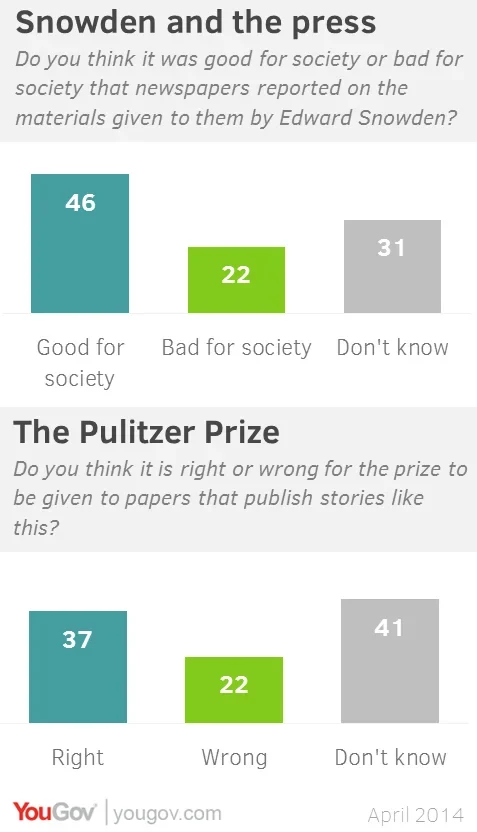By two to one, British people say it was good, not bad, for society that newspapers reported the materials given to them by Edward Snowden
On Tuesday The Guardian and US newspaper The Washington Post were jointly awarded the Pulitzer Prize – the biggest prize in US journalism – for their reporting on NSA surveillance. Edward Snowden, the former CIA contractor who famously leaked a trove of documents to newspapers detailing US and even UK government surveillance activities, immediately called the award a “vindication” even as a US congressman called the decision a “disgrace”. In the UK, former defence secretary Liam Fox called Snowden a “self-publicising narcissist” who committed treason.
In a new YouGov poll, public opinion tends to be in favour of the newspapers’ decision to publish the revelations, with British people calling the decision good, rather than bad, for society, by 46% to 22%. Many, however, (31%) are still unsure how they feel.

There had been much speculation about whether the Pulitzer Prize jury would decide to honour coverage of the bombshell revelations about government spying, which many – including the US President – have suggested put national security interests at risk. However, transparency advocates point to recent changes to US spying practices as evidence of the stories’ positive impact.
Asked specifically about the decision to reward papers who publish stories like the Snowden revelations, people in Britain back the decision by 37% to 22%. 41% don’t know.
The findings come even as trust in journalists remains near historic lows. In an October YouGov poll, only 45% said they trusted journalists from “upmarket” newspapers like The Guardian, to tell the truth, down from 65% in 2003.









